Research Articles
Review
Issue Reviewers



 0000-0003-2812-1106
0000-0003-2812-1106

 0000-0001-9434-619X
0000-0001-9434-619X

 0000-0002-7010-5065
0000-0002-7010-5065






 0000-0003-1994-7731
0000-0003-1994-7731

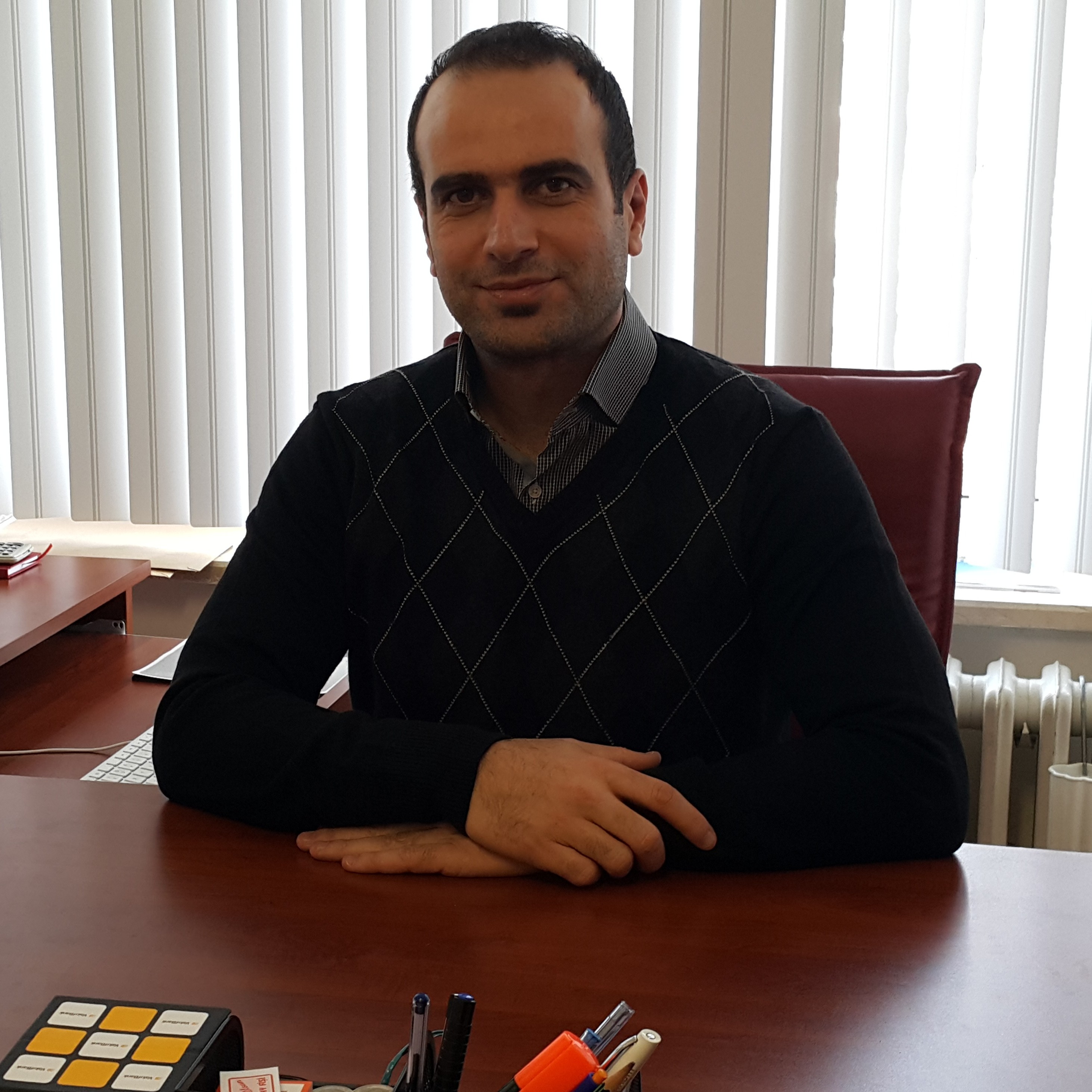
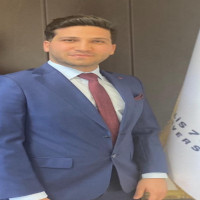
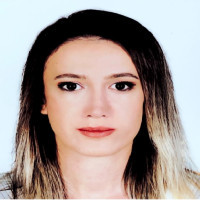

 0000-0001-7902-8978
0000-0001-7902-8978
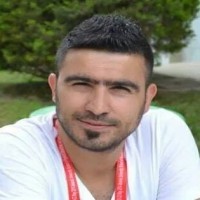
 0000-0002-9696-6541
0000-0002-9696-6541




 0000-0002-2166-6675
0000-0002-2166-6675

 0000-0002-5953-8353
0000-0002-5953-8353
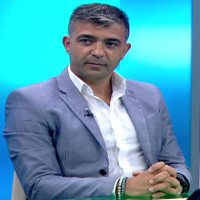
 0000-0002-8885-9543
0000-0002-8885-9543





Aim & Scope
The main aim of the Journal of Sport for All and Recreation is to examine the current developments in the theoretical and applied fields of Sport Sciences in a holistic and inclusive manner and to share the original articles and reviews that emerge in this direction with the target audience.
Journal of Sport for All and Recreation (JSAR), which started its publication life in 2019, is a peer-reviewed journal published 4 times a year. The journal includes articles in Turkish and English. However, as of June 2025, it will only publish in English. Journal of Sport for All and Recreation publishes original research and review articles that are conceptual or research-based and thought to contribute to the field in the fields of Physical Education and Sports Teaching, Sports Management, Recreation, Movement and Training Sciences, Psycho-social Areas in Sports and Sports-Health Sciences.
Author Guidelines
1. Template form
2. Title page
3. Copyright Transfer Form
4. Similarity report (%15)
5. Ethics committee report
Authors must ensure that the submission has not been previously published, nor is it before another journal for consideration at the same time.
The manuscripts must be submitted as a MS Word File. Other document types will not be accepted.
All manuscripts submitted to JSAR must be prepared using the JSAR Template. Manuscripts that are not prepared according to the JSAR Template will be returned to the author(s).
Submissions are only accepted via the Online Submission System of the journal.
The submitted manuscripts should be no less than 4000 words including references, appendices, tables, and figures. Submissions that are below 4000 words will not be accepted for review.
All submitted manuscripts must use the 7th edition of the Publication Manual of the American Psychological Association (APA) for both in-text and end-of-text references.
It is necessary for researchers to take the plagiarism reports (15% similarity limit).
The journal adopts “double-blind peer reviewing” policy to ensure the quality of the papers to be published. Therefore, at least two reviewers’ opinions are taken before the study is published.
Note: In the light of the Language Editor’s initial review, The Editorial Board may request language editing (proofreading) during the evaluation process of the submitted article. Even if the article is accepted for the Journal, it will not be published before proofreading and language editing.
Title of the study;
• Should be bold, use Times New Roman font size 14, and each initials capitalized
Manuscripts;
• Should be written with the following sub-titles in the following order: abstract, introduction, materials and methods, results, discussion, references; appendices (as appropriate).
• Each sub-title’s initials should be capitalized, bold and should use Times New Roman font size 10
Abstract;
•Should be unstructured and contain between 150 and 250 words.
• Should contain between 3 and 5 keywords, separated by commas and initials-capitalized
• Should be single-spaced and use Times New Roman font size 9
Main text;
• should use Times New Roman font size 10 on paper size A4 with a 2,5 cm margins on each sides.
• Should use 1 line spacing.
• There should be no more than 50 references, and no more than 8 tables and figures (combined total).
• Spelling can be US or UK English so long as usage is consistent.
Publication Manual of the American Psychological Association (7th Edition) should be followed for all references, tables, figures and reporting the statistics.
Tables should be single-spaced and font size 10
Figures should be high quality (1200 dpi for line art, 600 dpi for grayscale and 300 dpi for colour). Figures should be supplied in JPEG for high-quality concerns.
First level title (Introduction, Materials and Methods, Results, Discussion and Conclusion, Bibliography, etc.)
Tables
Tables, graphs and statistical reporting should be prepared according to APA 7 style. Table font should be written in 10 points, single spacing.
Example table;
Table 2
Title Should be Times New Roman 10 point. Table Number Should be Given Above.
In-text citations
Author information can be given in/out parentheses.
• In the citation in parentheses, the author's surname and publication date are included in parentheses. The author surname and date are added at the end of the sentence in parentheses and a comma is used after the author surname.
(Gülşen, 2020)
• In citation outside of parentheses (narrative), the author's surname is included as part of the sentence and the year is in parentheses.
Gülşen (2020)
• If a work has two authors, always include the surnames of both authors whenever you refer to the source.
(Gülşen and Yıldız, 2022)
Gülşen and Yıldız (2020)
• If a study has three or more authors, give only the surname of the first author and then “et al.,”
Gülşen et al. (2022)
(Gülşen et al., 2022)
• When more than one source is in parentheses, they should be cited in alphabetical order and separated by semicolons.
References
• References should be listed in alphabetical order according to the first author's surname and first letter.
• In studies with one or two authors, the conjunction "and" should be used between two authors.
• In studies with three or more authors, the conjunction "and" should be used before the last author.
Conference Papers
Author, A. A. (Year, Month 1-30). Title of the study. Congress Name, (pp. 13-23). City, Country.
Theses
Author, A. (2022). The title of the thesis is in italics. Unpublished PhD thesis, University, Institute, Department, City.
Webpage
Author Surname, Initial or Group name. (Date). Title of the study. The name of the website. The URL …. taken on.
World Health Organization (2020, 13 November). Coronavirus. World Health Organization. https://www.who.int/.
Official Publications and Press Releases
Turkish Statistical Institute. (2020). Sports with statistics (Publication no. 1313). https://tuik....
Note: All references should be arranged according to APA 7
https://apastyle.apa.org/style-grammar-guidelines/references/examples
Ethical Principles and Publication Policy
Publication Ethics
Scientific works are studies which are concluded as a result of scientific methods and which provide with the application of scientific methods and objectivity. In the process of production of these works, all the components of the publication process; namely, publisher, editor, author, reviewers, and readers must follow the ethical principles. In this scope, Journal of Sport for All and Recreation must also follow the ethical principles of the all components of the publication process in the light of the guides and policies published in the open access by the Committee on Publication Ethics, COPE (e.g. COPE “Code of Conduct and Best Practice Guidelines for Journal Editors” and “COPE Best Practice Guidelines for Journal Editors”, ICMJE Recommendations, CSE White Paper on Publication Ethics, WAME resources, WMA policies, and WMA Helsinki Declaration).
In case manipulated, falsified and fabricated data is determined in the scientific studies which are sent and/or accepted by the journal, the institution(s) for which the author(s) works for will be informed and the study will be rejected. Journal of Sport for All and Recreation has the right to ask for the documents related to the analysis results from the authors according to the feedback given by the editorial board and/or reviewers.
Ethical Approval
In the scope of the protection of human and animal rights, the Journal of Sport for All and Recreation adopts the exact convenience principle of national and international ethical rules and principles. In the articles evaluated in Journal of Sport for All and Recreation, Research Ethics Committee Approval is needed for the following items:
• Research conducted in qualitative or quantitative approaches which require data collection from the participants using survey, interview, focus group study, observation, and/or experiment techniques,
• Using humans or animals (including material/data) with experimental or other scientific aims,
• Clinical research on humans,
• Research on animals (Experimental animals used for various exercise programs of aerobic and anaerobic (Mice, Rats etc...)),
• Retrospective studies in accordance with the law on the protection of personal data.
Ethical Responsibilities of the Publisher
Journal of Sport for All and Recreation is a journal published in the field of Sport Sciences with the management of publication board or editorial board since 2016. The journal advocates for the publication of scientific studies in adherence to ethical principles and operates on a non-profit basis.
• The publisher who is one of the stakeholders of the scientific study must act in the light of ethical principles.
• The publisher is responsible for using the communication ability without considering personal benefits and for leading the audience correctly.
• The publisher protects all the property rights and copyrights of the articles published in their journal; and assumes the task of archiving each product.
• Individuals must not abstain from contacting the publisher in case they come across an unethical situation.
Ethical Tasks and Responsibilities of the Editors
• Rejecting articles which are incompatible with the aim and scope of the journal.
• Considering the original value of the articles, their contribution to the field, the reliability and validity of the research method, the clarity of expression and the aim and scope of the journal.
• Evaluating the articles in the pre-assessment phase as long as there are no serious problems about the submitted articles; considering the suggestions of the Reviewers, not changing the decisions made by previous editor(s) as long as there are no serious problems, providing with constructive criticism.
• Applying double-blind peer review method and evaluation process policies adopted by the journal, keep the identity information of the reviewers confidential, providing with objective and timely evaluation for each article.
• In order to provide with independent peer evaluation,
• In order to achieve peer evaluation independently, reviewers independent from the institutions of the authors are appointed.
• Sending articles for evaluation to the editors and reviewers considering their field of expertise and supporting objective and independent evaluation process.
• Acting in a balanced objective and fair way while the reviewers and editors do their duty without letting any discriminations against gender, religion or political belief or the ethnic or geographical roots of the authors.
• Evaluating the articles according to their content and favoring no authors in that sense.
• Taking necessary precautions and evaluating the presented declarations if any; in order to prevent possible conflicts of interest. In case there is a conflict of interest, Journal suspends the evaluation process of the article until the ambiguity is resolved; in this sense, Journal has the right to demand Research Ethics Committee Approval, Interviewer Consent Forms, and required documents.
• Evaluating sponsored articles or articles on special subjects in the same way with other articles.
• Applying required procedures by adhering to the policies and procedures of the journal in case there is a complaint about the ethical violation. Giving a chance to the authors in order to answer the complaint, and not avoiding applying required sanctions no matter to whom the article belongs to.
• Taking articles with negative conclusions into account.
• Acting responsibly and sensitively about publishing contents such as notice of correction, explanation, apology, and disclaimer.
Ethical Responsibilities of the Reviewers
Reviewers who are to evaluate articles submitted to Journal of Sport for All and Recreation must carry the following ethical responsibilities:
• Reviewers must objectively evaluate only the content of the article in a timely manner and must accept articles only about their fields of expertise in order to contribute to the decision-making process of the Editor.
• Reviewers must carry out the evaluation objectively and in strict confidence. As per this principle, they must remove the articles that they have evaluated and must use them after they are published. Nationality, gender, religion, political belief and commercial purposes must not be included in the evaluation process and must not ruin the objectivity.
• When reviewers conclude that there is a conflict of interest – common interest, they must inform the editor and reject evaluating the article.
• Reviewers must conclude evaluation in accordance with the academic etiquette with a constructive and kind use of language; and must avoid libelous and hostile personal comments.
• Reviewers must evaluate the article which they accept to evaluate in the given time.
• Reviewers must reject evaluating articles which resemble to their own article in the writing process or in the evaluation process.
• Reviewers must protect the confidentiality of the information provided by the editor and author; as per confidentiality policy, they must remove the article after evaluation; if any, they must inform the editor about situations against bling judgment policy and reject the offer of evaluation.
• They must be aware of the potential conflicts of interest (financial, institutional, collaborative or author-related or the relations among authors); and if necessary, they must warn the editor.
• They must continue to protect the confidentiality of the study and the evaluation process.
• In case there is a situation which can affect their original comments and feedbacks, they must inform the journal.
• They must try to reply to the demands coming from the journal about revision and re-evaluation.
Ethical Responsibilities of the Authors
The following are the scientific research ethical responsibilities of author(s) who submitted article to Journal of Sport for All and Recreation:
• Author(s) must not submit their articles to Journal of Sport for All and Recreation at if the article was published in another journal or was submitted to another journal.
• Author(s) must send original articles to Journal of Sport for All and Recreation.
• Author(s) must refer to the sources that they use during the production of the article appropriately in the light of ethical principles.
• The individuals who does not contribute to the article must not be included in the article as author(s); changing the author order of the article or adding new authors or excluding an author must not be offered after submitting the article. During submission, the names of the authors must be uploaded to the system by the correspondent author. The Journal Editor Committee do not make any changes on the system.
• Author(s) must inform the editor about the individuals with conflict of interest or common interests for the article that has been submitted.
• In case information about the article or raw data is requested from the authors during the evaluation process, the requested information must be provided by the author(s) to the editor.
• Author(s) must provide documents related to the rights to use data, the approvals related to the research-analyses or the consents of the participant who forms the study groups. Information concerning voluntary participation consent form must be provided in the method part.
• Author(s) must contact the editors and edit or retrieve their content within five days when they realize that there is a problem with their article in the process of evaluation or in the preview process or published in the journal’s electronic environment.
• Author(s) must provide information regarding ethics committee approval of their articles which require quantitative or qualitative data collection such as experiment, survey, scale, interview, observation, focus group study with the name of the ethics committee name, decision date and issue in the first and last pages and in the method part. They must also submit an ethics committee approval document to the system.
• Author(s) must provide evidence (obtaining permission for the use of documents such as scales, surveys and photographs developed by others) that show they pay strict attention to the ethical principles in the process of data collection in the article. In the articles, it must be pointed out that copyright regulations were applied for the research and publication ethics and literary and artistic works. If the research is on humans and animals, it must be pointed out that the research was conducted in accordance with the international declarations, guides etc. (Helsinki Declaration).
• No ethics committee approval is required for the review articles. However, authors must show that there is no requirement for ethics committee requirement in the first, the last and the method part for the articles without ethics committee requirements.
Vulnerable Population Policy
• Vulnerable groups research must be conducted in accordance with the WMA Helsinki Declaration, Articles 19 and 20, and approved by an ethics committee decision by the legal authority.
• The study must meet the needs and priorities of the group/individuals in which it is conducted. The case in which the study cannot be carried out outside of these groups and individuals is taken into consideration.
• In research involving vulnerable groups, additional measures to protect volunteers must be documented by researchers/s.
• The journal editor/advisory board may conduct an additional review within the framework of basic ethical principles. Additional information may be requested in addition to ethics committee permissions during the journal review process.
Scientific Quality: The scientific quality of research conducted with vulnerable groups must be in accordance with the standards of the Helsinki Declaration, ICH, and the Human Rights and Biomedicine Convention. This means that the research must be well-designed, the research protocol must be properly implemented, and the methods for compiling and analyzing the data must be valid.
Autonomy Principle: Vulnerable groups and individuals must be protected in terms of informed consent processes that are not based on coercion, pressure, or incomplete information. This includes ensuring that research participants are fully informed about the nature, risks, and benefits of the research, and that they have the right to freely decide whether or not to participate.
Privacy Principle: For the publication of research conducted with vulnerable groups, the confidentiality of participants and the anonymity of data must be ensured. This means that the identities and personal information of research participants cannot be disclosed.
Justice Principle: Research on vulnerable groups must be in accordance with the principles of equality and justice. This means that research should not discriminate on the basis of gender, ethnicity, religious belief, socioeconomic status, or other demographic factors.
Social Benefit: The fundamental criterion is that the interests of the volunteers who participate in the research should take precedence over the social and scientific benefits. It is expected that research conducted with vulnerable groups will provide social benefits.
Artificial Intelligence (AI) policy
Declaration of Generative AI in Scientific Writing
Journal of Sport for All and Recreation (JSAR) embraces new AI-driven technologies that support reviewers and editors in the editorial process, and we continue to develop and adopt in-house or licensed technologies that respect authors’, reviewers’ and editors’ confidentiality and data privacy rights. JSAR will consider content where AI technologies are used. Our approach is one of transparency. Where AI technology has been used this should be clearly described. Editors will consider the suitability of the use outlined. Our approach is in line with organisations including the World Association of Medical Editors (WAME) and the Committee on Publication Ethics (COPE).
Transparent reporting of AI technologies in content submitted to Journal of Sport for All and Recreation: We expect authors or others who are creating content to disclose and describe use of AI technologies in (a) any content which is submitted to us, (b) any other work by the authors which underpins or is otherwise connected with the content submitted to us, and (c) any key sources which are cited, to the best of the authors’ knowledge.
To ensure transparent declaration of AI, authors should: Include an acknowledgement of AI use in the ‘contributor’ section of written material. If the AI use was in the course of research, a fuller description should be included in the methods section.
Transparent declaration includes a description of:
• What AI technology was used (the name of the technology)
• Why this AI technology was used (the reason for its use)
• How the AI technology was used (what the task of the technology was)
AI Decision
Journal of Sport for All and Recreation will consider whether the way in which AI was used and declared is reasonable and consistent with its publication policies and practice. Content may be rejected or be subject to post-publication changes on the basis of inadequate declaration or on the particular circumstances of its use.
Plagiarism Policy
Plagiarism is a common and serious ethical problem which affects the scientific studies without considering if it is deliberate or not. Consequently, it is unethical and unacceptable as well as it is a crime to publish articles which have similarities with other sources and do not include references for it.
Journal of Sport for All and Recreation takes various precautions to prevent any kind of plagiarism. Similarity Report Programs (Turnitin, İthenticate) are used in order to determine the coinciding and similar text examples of the articles (after the acceptance of the articles). Articles with similarity score of 10% and more are rejected even though they are accepted in the first place. Moreover, publication board can act in accordance with COPE rules when encountered by plagiarism, reference manipulation and data fraud claims and suspicions.
Reporting Situations Against Ethical Principles to the Journal Editor Board
Policy Grounds
YÖK Bilimsel Araştırma ve Yayın Etiği Yönergesi (Board of Higher Education Scientific Research and Publication Ethics Directions)
Committee on Publication Ethics (COPE)
World Medical Association (WMA) Declaration of Helsinki
International Committee of Medical Journal Editors (ICMJE)
Budapest Open Access Initiative
Creative Commons
APA (American Psychological Association)
LOCKSS
Price Policy
JSAR FEE POLICY
The Journal of Sports and Recreation for All charges 4000 TL to the authors for an article application fee - regardless of acceptance/rejection conditions.
In accordance with the decision taken at the General Assembly of the Council of Higher Education dated 07.03.2019, the fee is collected in cash.
The text of the decision taken at the general assembly of ÜAK dated 07.03.2019 is as follows;
The following journals can be used in the associate professorship application requirements (declaration);
• Journals that charge a fee when submitting an article - regardless of acceptance/rejection conditions.
• Journals that charge a fee to make the relevant article open access even though they operate on a subscription basis
• Journals that do not charge any fee to authors during the article publishing process,
Authors must deposit the requested service fee to the account below during the article submission phase and send the receipt along with the article and author information to jsareditor@gmail.com.
The article processing fee for all articles uploaded as of 2024 has been updated to 4000 TL.
IBAN: TR80 0001 5001 5800 7339 2637 18 (Vakıfbank)
Akan Bayrakdar
Articles published by Journal Sports for All and Recreation is licensed under the Creative Commons Attribution-NonCommercial-NoDerivatives 4.0 International (CC BY-NC-ND 4.0) License.


